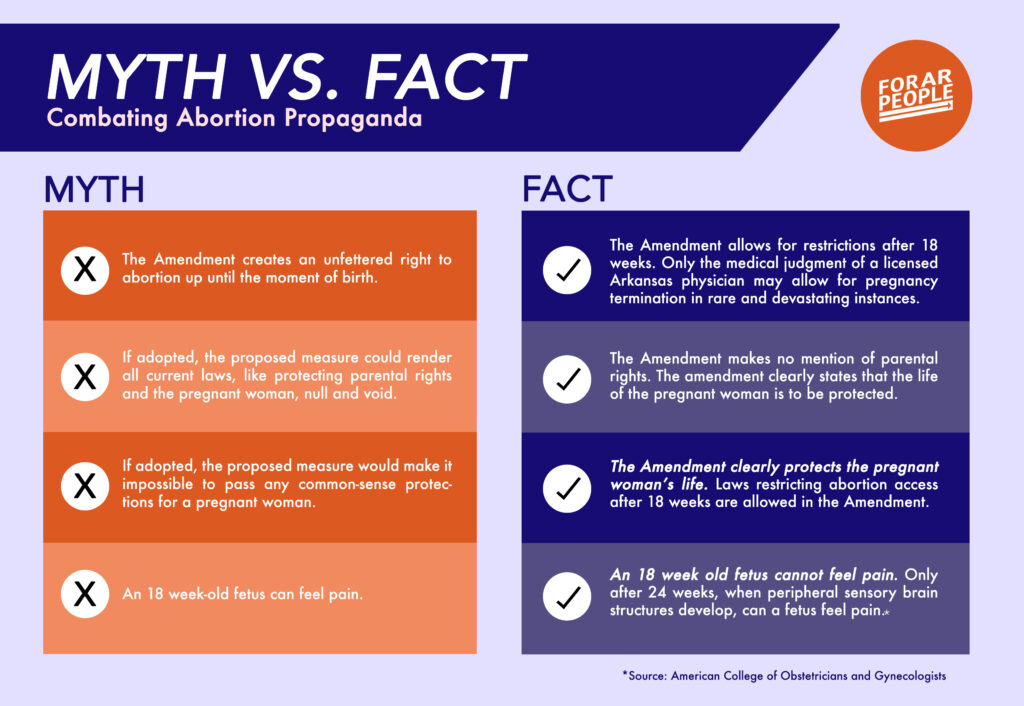The far right’s political propaganda only uses one thing: fear
Extremist, anti-abortion rhetoric often relies on misleading propaganda to sway public opinion and garner support for the anti-choice cause.
By disseminating inflammatory and false information, extremists seek to manipulate individuals into adopting their political viewpoint, regardless of the factual inaccuracies presented to the public. Such tactics not only misrepresent the truth but also perpetuate harmful misconceptions about reproductive health care and individual rights.
Take, for example, the extremist rhetoric surrounding the Arkansas Abortion Amendment, which opponents incorrectly claim creates an unfettered right to abortion up until the moment of birth. This false argument exemplifies the deceptive strategies Arkansas Right to Life employs.

In reality, the amendment allows for legislative restrictions on abortion after 18 weeks and places significant emphasis on the medical judgment of licensed Arkansas physicians in rare and devastating instances of fatal fetal anomaly or when a third trimester pregnancy complication threatens the physical health or life of a woman.
Extremists often propagate myths about the potential consequences of adopting measures that protect reproductive rights in order to achieve their particular political outcome. In this case, the far right perpetuates the claim that limited abortion access would nullify existing laws safeguarding parental rights and the well-being of pregnant women. But as the text of the amendment clearly states, the life of the pregnant woman is protected above all.
Far right political propaganda only uses one thing: fear. By suggesting that common-sense and compassionate protections for pregnant women would become impossible to enact under proposed measures, the far right aims to trick voters through falsehoods.
Contrary to Right to Life’s claims, the Arkansas Abortion Amendment includes provisions that safeguard the life of the pregnant woman while allowing for laws restricting abortion access after 18 weeks. This is intentional on the part of drafters; the policy demonstrates that protecting women’s rights can be compatible with reasonable abortion regulations.
One particularly egregious falsehood they perpetuate is that an 18-week-old fetus can feel pain. Scientific evidence unequivocally refutes this claim, indicating that fetal pain perception typically develops after 24 weeks when peripheral sensory brain structures mature.
To be clear: this is disinformation intended to elicit an emotional response and manipulate individuals into supporting Right to Life’s extreme agenda.
This deceptive approach not only distorts the truth but also undermines informed healthcare discourse. It is imperative to critically evaluate the claims made by extremist groups and advocate for policies grounded in evidence-based, scientific research.





